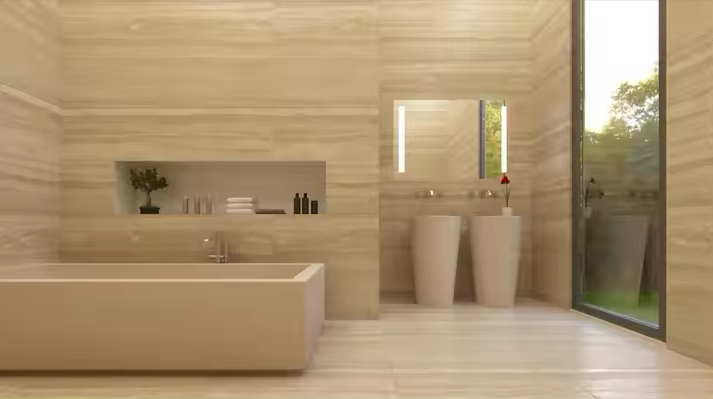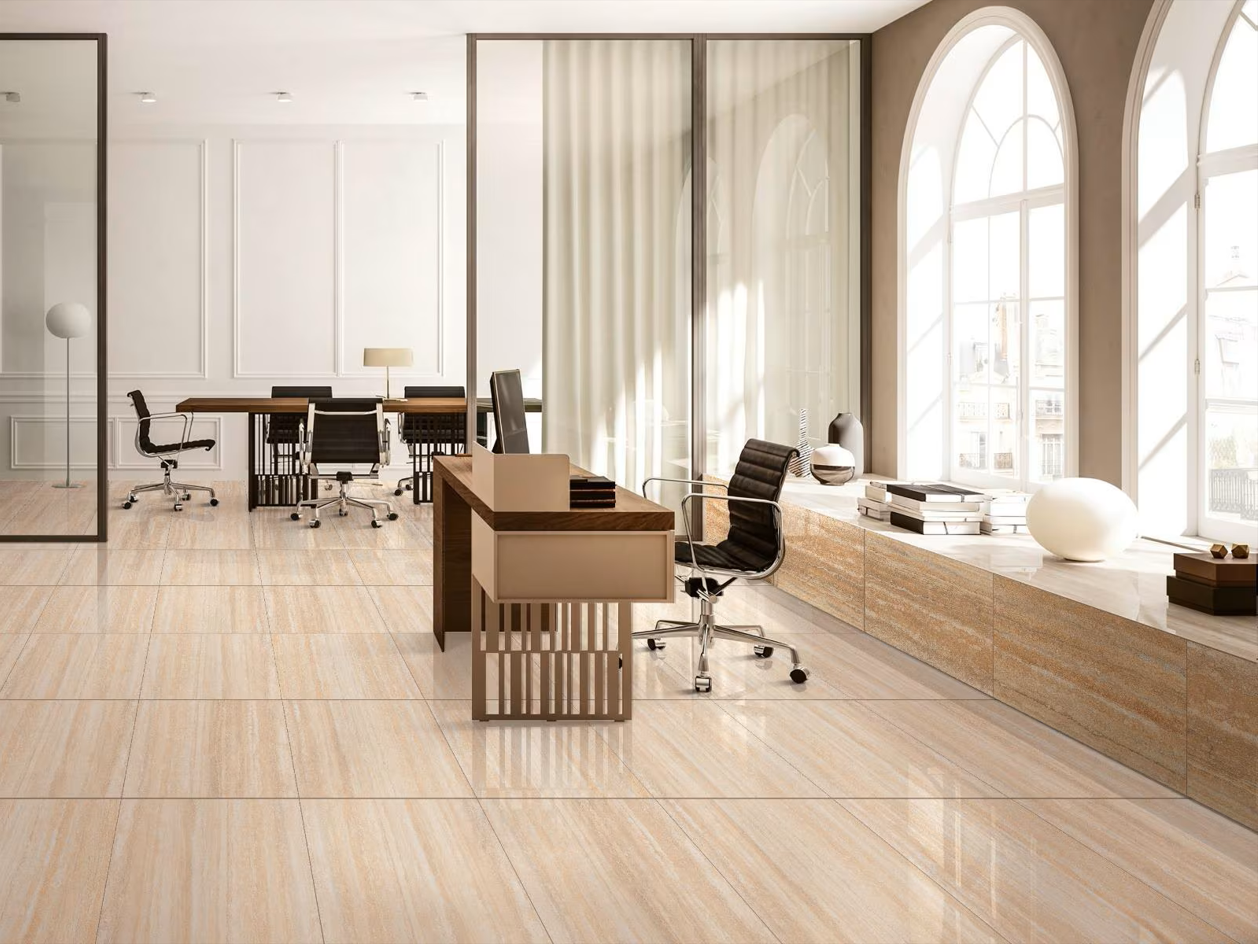
What is Travertine & Why Choose It
Travertine is a type of natural limestone formed by mineral‑rich waters, often in hot springs or river mouths, producing beautiful textures, veins and a warm palette.
Here’s why it’s a good choice for homes or commercial spaces in Chennai:
-
Aesthetic versatility: Travertine comes in beige, cream, grey, silver and other tones. Its natural variation means each slab is unique.
-
Suitability for warm climates: Because it retains a cooler feel underfoot, it’s suitable for Chennai’s tropical climate.
-
Interior & exterior application: From flooring, wall cladding, countertops to poolside paving, it can be used in many ways.
-
Cost‑effective alternative to high‑end marble: Travertine often gives a luxurious look without the highest marble price. According to one Chennai supplier, pricing and other factors like quality, size, finish all matter.
Key Factors to Consider When Buying Travertine Marble in Chennai
1. Quality & Grade
Quality varies significantly. Slabs with consistent colour, minimal imperfections, and good veining are higher grade and cost more.
2. Finish & Thickness
Finish (polished vs honed vs tumbled) affects appearance and price. Polished finishes cost more. Thickness & slab size impact cost as well.
3. Source & Supplier Reputation
Travertine may be imported or Indian‑quarried; supplier reliability matters for consistent delivery, genuine material, correct finishing and after‑sales support.
4. Fit for Purpose
-
For flooring: you want slabs evenly cut, good thickness, slip‑resistant finish if outdoors.
-
For wall/cladding: lighter slabs may suffice but check anchoring and durability.
-
For outdoor/pool: check that the stone is suitable for sun, water, weather, and has enough grip.
5. Budgeting & Pricing
In Chennai, travertine marble pricing is influenced by the factors above (quality, size, finish, location of supplier) so compare quotes.
6. After‑Sales & Installation Support
Stone installation requires skill (grouting, sealing, correction of joints, substrate prep). Choose a supplier who can recommend experienced installers or give guidance.
Where to Buy High‑Quality Travertine Marble in Chennai
Here are three reputable dealers in Chennai where you can explore and purchase “travertine marble in Chennai”. Visiting showrooms and seeing the slabs in‑person helps immensely.
1. Goyal Marbles Private Limited
Located at 81, Poonamallee High Road, Nerkundram, Koyambedu, Chennai.
Why this one: They specifically mention travertine stone for Chennai and Tamil Nadu in their blog, emphasising its use for walls, elevations and countertops. They also highlight how factors like finish, size & thickness affect pricing in Chennai.
Visiting tip: Ask to see different finishes (honed vs polished) and mixed batches so you appreciate natural variation.
2. A‑One Marbles
Address: #108, 130, Poonamallee High Rd, Varalakshmi Nagar, Sentamil Nagar, Maduravoyal, Chennai‑95.
Why visit: They specialise in natural stone products including travertine, and cater to both large‑scale projects and individual buyers. |
Tip: If you have a large area (e.g., commercial lobby or hotel project), this supplier might provide bulk discounts or project pricing.
3. Mayur Marbles
Located at 178, Poonamallee High Rd, Pallavan Nagar, Maduravoyal, Chennai.
Why good: With a strong reputation (4.9 stars in reviews) and wide selection of marble and stone, this one is a solid local choice for travertine marble in Chennai.
Tip: Compare a few slabs there, ask about availability of specific sizes/slabs and lead time for delivery.
Shopping & Installation Tips Before You Decide
-
Inspect multiple slabs: As travertine is natural, slabs from the same batch may vary. Choose the best colour/vein match if you want uniformity.
-
Request samples: For flooring areas especially, take home a small tile and check how it looks under your lighting.
-
Check slab thickness/backing: For heavy‑traffic floors or outdoor use, thicker slabs are recommended.
-
Seal the stone: Travertine is porous — sealing ensures durability and resistance to stains.
-
Align finish with use: Polished finish may be too slippery for outdoor or poolside; honed or textured finish may be safer.
-
Installation expertise matters: Ensure installer uses proper substrate, movement joints, suitable adhesive and grout for travertine.
-
Budget for wastage: Natural stone often has more cut‑offs/wastage than tiles; include 5‑10 % extra for off‑cuts, pattern matching etc.
-
Maintenance plan: Travertine requires periodic resealing, gentle cleaning (avoid harsh acids). Knowing this upfront saves issues later.


